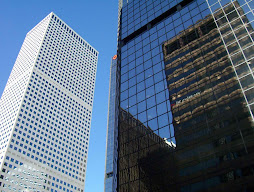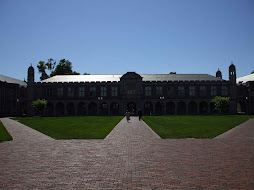Big and bad news. Excerpts:
Egypt’s internal security forces are reportedly redeploying across the country Jan. 30 after abandoning the streets the previous day in a demonstration, showing what chaos would ensue should they be undermined by the military. As the protests show early signs of dwindling, Egyptian President Hosni Mubarak and Interior Minister Habib al-Adly, who have negotiated a stay in power so far, are likely betting that the protesters, who thus far have been unable to coalesce into a unified group, will clear the streets under pressure. However, serious potential for clashes remain, especially considering hostilities between the army and the police and between the police and protesters. The coming hours will thus tell whether Mubarak’s bet on the opposition was a wise one.
And:
The decision to redeploy the internal security forces follows a major confrontation that has played out behind the scenes between the Interior Ministry and the military. The animosity between Egypt’s police and soldiers was amplified Jan. 28 when demonstrators overwhelmed the CSF and plainclothes police and the army stepped in to attempt to restore order.
Fearing that he and his forces were being sidelined, al-Adly was rumored to have ordered the police forces to stay home and leave it to the army to deal with the crisis. Meanwhile, multiple STRATFOR sources reported that many of the plainclothes policemen were involved in a number of the jailbreaks, robberies of major banks, and the spread of attacks and break-ins into high-class neighborhoods that occurred Jan. 29. In addition to allowing the police to blow off steam, the implicit message that the Interior Ministry was sending to the army through these actions was that the cost of undermining the internal security forces was a complete breakdown of law and order in the country that would in turn break the regime.
And:
Within the next few hours, police and military officials are expected to redeploy in large numbers across major cities, with the CSF taking the first line of defense. Tensions are still running high between the internal security forces and the military, which could lead to serious clashes between the army and police on the streets. The size and scope of the protests appear to be dwindling into the low thousands, though there is still potential for the demonstrations to swell again after protesters rest themselves and wake up to the same government they have been trying to remove. Moreover, as the events of Jan. 28 and 29 illustrated, protesters are far more likely to clash with the CSF than with the military.
Two powerful and concise posts from the amazing Xymphora regarding the crisis: The one sentence post "Looting," and the perfectly laid out, this-is-most-likely-Mubarak's-plan "Schemes of the Pharaoh." Here's a taste..
You withdraw the police, and use the undercover police to loot and pillage ("2 looters were just caught in Muharram Beyh neighborhood of Alexandria who had police ID cards and were members of undercover plainclothes force."), empty prisons, and play up the dangers on local television, thus frightening the middle classes. You even attack strong symbols of the country in looting the Egyptian Museum ('a high-ranking member of the ruling National Democratic Party was involved in the attack on the museum'). The message is that the strong hand of the 'father' is needed to preserve order. As bad as things are, they could be worse.
Mubarak's regime still has home court advantage. Will the people continue on, or will Mubarak's strategies wear them down, and ultimately prevail? Do the people need to agree about anything else, at the moment, other than the removal of Mubarak, his administration, and his spheres of influence?
Zuck to The Hague
-
“TG 1587: Iranian President's Helicopter Crashes: Possible Foul Play?“ (The
Gaggle).“Israel's Designated Safe Zones in Gaza Are Deathtraps“ (Arab
Talk).“Lu...
37 minutes ago
































































































No comments:
Post a Comment